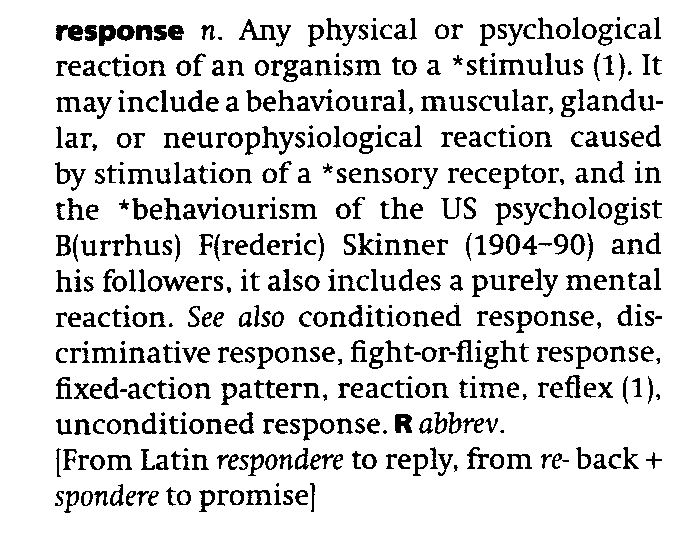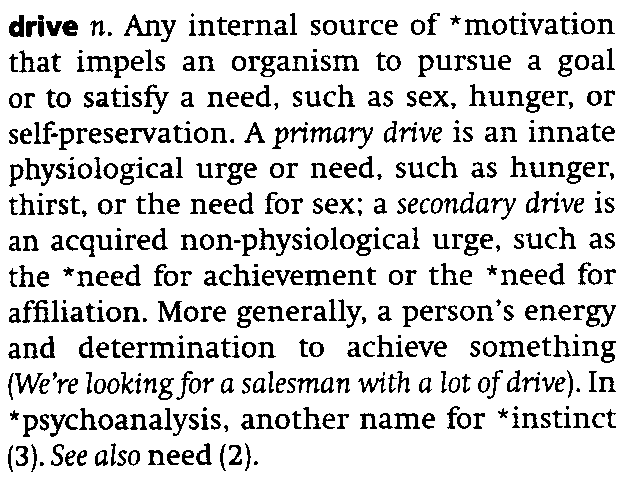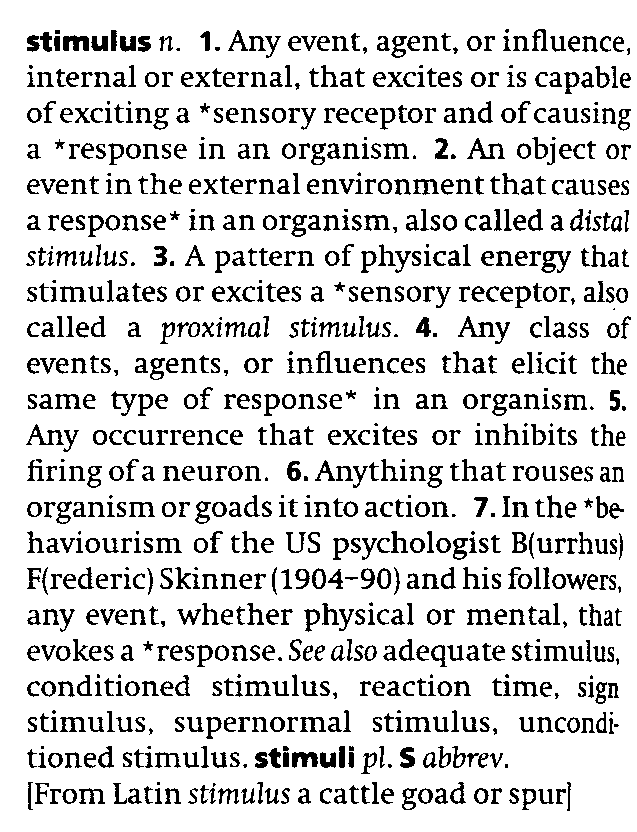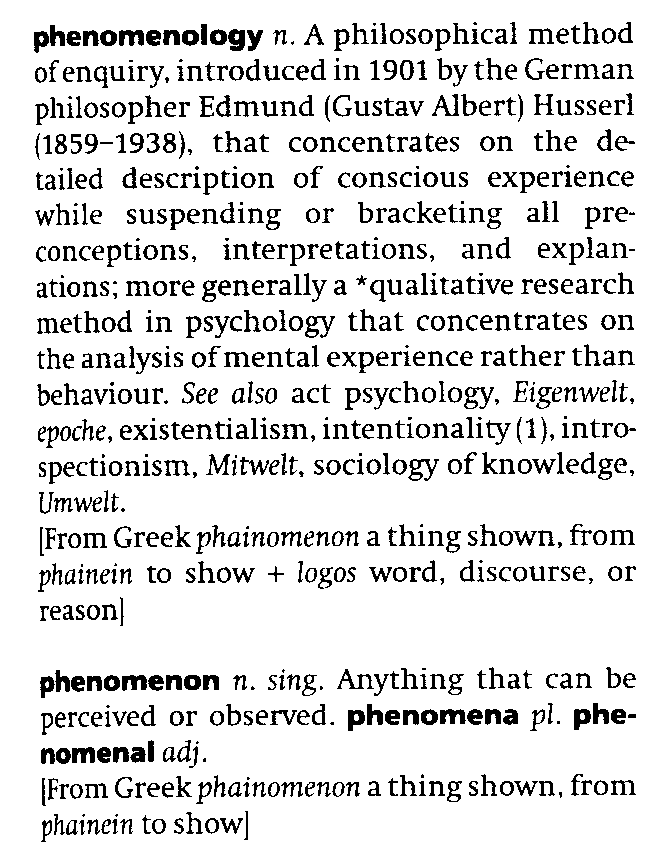
- •Unit 2. Perspectives in psychology
- •Learning to read
- •Discourse Study: Cohesion II
- •Task 2. [Individually, then pairs] Read the following passages and restore the words which appear to be missing after the words in bold type. Compare your answers with those of your partner.
- •Grammar and Meaning: Recognizing clauses
- •Example:
- •Interacting with the text
- •Task 2. [in pairs]
- •To influence sb / sth (an) influence on sb / sth
- •Questioning
- •Getting clarification
- •Task 1. [individually, then in pairs]
- •Commenting on questions
To influence sb / sth (an) influence on sb / sth
Psychology also affects our life through its ____________ laws and public policy.
They argued that people may __________ the environment just as the environment may ___________ them.
Freud’s overall ___________ the field has been deep and lasting.
This shift in emphasis toward cognition had such a profound ___________ psychology that it has often been called the cognitive revolution.
By unconscious process Freud meant beliefs, fears, and desires a person is unaware of but that nevertheless ___________ behavior.

Word Choice: Synonyms
You will often find that several words share a similar general meaning. But be careful – their meanings are almost always different in one way or another. When comparing two words in the dictionary, look at the definitions and examples and any Usage Notes. Then ask yourself these questions:
Compare: argue / claim: both words mean “to state”, but argue means to say that something is true/not true, right/wrong, etc. and to give reasons why you think that esp. to persuade people that you are right, and claim means to say that something is true although it has not been proved and other people may not believe it
Sometimes the words are different in degree: astonishment is a stronger word than surprise
Sometimes the words express a different attitude: You say something is newfangled if you disapprove of it because it is too modern, in a way that seems unnecessary. If you do not feel disapproval, you can use words like new or modern.
Words with a similar meaning are often used in very different situations.
Sometimes the words have a different style: In these pairs, one of the words has a particular style which means that it is not usually used in an ordinary situation. Compare: seek (formal) / look for brainy ( informal) / intelligent crap (impolite) / nonsense kick the bucket ( humorous) / die
Sometimes the words are used by particular people: Some words are normally used by specialists and are referred to as ‘technical’. Other people will use another word for the same thing. Compare: cardiac arrest (technical) / heart attack
Sometimes words with a similar meaning are used in different grammatical patterns. Compare: to suggest / to propose: Both verbs can mean “ to put forward an idea or a plan for other people to think about ”, but are followed by different verb patterns: suggest doing sth, suggest that sb do sth, suggest that sb should do sth and propose doing sth / to do sth
aim / goal: Both words collocate with the verb “achieve”, but goal can be also used with attain, while aim cannot. We usually say “aims and objective ”, “twin goals”.
Notice that even when words appear to be synonyms, they are rarely the same in all the ways discussed here. |
Task 5. [individually]
Study the words below. They all mean approximately the same, still there are some slight differences in their meanings. Identify the differences and complete the diagram with Russian equivalents.
someone who supports a person, political party, idea etc.
adherent |
|
advocate |
|
follower |
|
supporter |
Formal a person who supports a political party or set of ideas: [+ to]
|
|
1. a person who publicly supports a particular way of doing things: [+ of] 2. a person who acts and speaks in support of sb else: [+ for] |
|
a person who supports and admires a particular person or set of ideas: [+ of]
|
|
a person who supports a particular person, group, or plan, etc: [+ of] |
… |
|
… |
|
… |
|
… |
C
 omplete
the following sentences with the most appropriate words from the
diagram above.
omplete
the following sentences with the most appropriate words from the
diagram above.
Volunteers serve as ………….. for abused children.
From the start of psychoanalysis, Freud attracted ……………., many of whom later proposed competing theories.
………………. of the biopsychological perspective argue that much of human behavior can be explained in terms of bodily processes and structures.
Some psychologists, particularly …………. to humanistic psychology, may go as far as completely rejecting a scientific approach.
A debate between Adler's ……………….. and Freud's was arranged, but it resulted in Adler, with nine other members of the organization, resigning to form the Society for Free Psychoanalysis in 1911.
Carl Jung, a one-time ………….. and contemporary of Freud, was instrumental in introducing notions of spirituality into Freudian psychoanalysis (Freud had rejected religion as a mass delusion).
Task 6. [individually, then in pairs]
Study the words below. Identify the differences between the words. Note the patterns each word occurs in.
approach |
|
perspective |
|
viewpoint |
|
school of thought |
a method of doing something or dealing with a problem
|
|
a particular attitude towards sth; a way of thinking about sth |
|
a particular way of thinking about a problem or subject |
|
an opinion or way of thinking about sth that is shared by a group of people |
[+ to] to adopt an ~ to take an ~
an ~ to sth in sth |
|
[+ on] [from sb's ~] [from a feminist/Christian /global etc ~] a ~ on sth in sth
|
|
[+ on] [from sb's ~] [from the ~ of sb/sth [political/scientific/feminist etc ~]
|
|
|
…
|
|
… |
|
… |
|
… |
Study the following sentences. In some of them the words in bold can be used interchangeably, in others only one word is appropriate.
Rogers developed person-centered therapy, a nonjudgmental, nondirective approach that helped clients clarify their sense of who they are in an effort to facilitate their own healing process.
Behaviorism revolutionized psychology and remained the dominant school of thought / perspective / approach for nearly 50 years.
Socrates made many important observations about how the brain controlled various organs of the body, which set the stage for the modern approach to physiology and the biological perspective / approach in psychology.
A particular area of psychological investigation often can be analyzed from a number of different viewpoints / perspectives.
We need to seriously consider all the different viewpoints / perspectives on the issue.
Translate the sentences into English.
Попробуйте посмотреть на этот вопрос с другой точки зрения.
Мы решили подойти к проблеме с другой стороны.
К изучению психологии можно подойти с нескольких сторон.
Феноменологическое направление в психологии изучает субъективные переживания индивида, свободу выбора и стремление к самореализации.
На психологию оказали влияние различные школы псевдонаучной мысли.
Подход Вундта к изучению психики основывался на систематическом наблюдении.
Task 7. [individually]
Study the words below, noting the differences between them. Complete the diagram with Russian equivalents.
invent |
|
discover |
|
find out |
|
learn |
|
determine |
to make or design sth that did not exist before |
|
to find sth that already exists or learn about it for the first time, before anyone else does. You can also discover a piece of information that other people knew but you didn't |
|
to get information, after trying to discover it or by chance
|
|
formal to become aware of sth by hearing it from sb else or reading it |
|
formal to discover the facts about sth |
…
|
|
… |
|
… |
|
… |
|
… |
(b) Complete the sentences with appropriate verbs in the correct form.
Pavlov had _______________ a basic form of learning called classical conditioning (also referred to as Pavlovian conditioning) in which an organism comes to associate one stimulus with another.
Who _____________ the steam engine?
We ______________ later that we had been at the same school.
I had some tests done to _____________ if I have any food allergies.
It is essential to ___________ whether such programs—aimed, for example, at preventing drug abuse among high-school students, or providing job training for unemployed youths—are effective.
Several months ago McNaughtan _______________ that he had cancer.
But to assume that problems of mind and behavior can be solved by discarding all that we have ______________ about scientific methods of investigation seems fallacious.
Task 8. [in pairs]
Study the following pairs and groups of synonyms and example sentences. Try to find out if there are any differences between them either in meaning or in usage. Make notes of the identified differences in the boxes.
explore |
investigate |
|
|
|
|
|
exploration |
2. The remainder of this paper will focus on an exploration of this theme. |
|
Investigation |
|
|
study |
|
|
research |
|
response |
reaction |
|
|
|
|
innate |
inborn |
|
|
|
|
Task 9. [individually]
Translate the following into English using appropriate words and phrases from Task 8.
Эти вопросы еще не были детально рассмотрены.
В отличие от Вундта и Джеймса, для которых психология была изучением сознательного опыта, Фрейд полагал, что поведение людей мотивировано в основном бессознательными побуждениями.
Они разрабатывали теории о том, являются ли черты характера человека врожденными или приобретенными.
Они изучают стимулы окружающей среды и реакции, вызываемые этими стимулами.
Гуманистическая психология возникла в 50-ые годы как реакция на бихевиоризм и психоанализ.
Теперь, когда у нас есть некоторое представление о темах, изучаемых в психологии, и подходах к их изучению, мы можем рассмотреть методы исследования.
Task 10. [individually]
Put the following sentences into more formal English by replacing the underlined words with their more formal equivalents.
The cognitive perspective is interested in mental processes such as perceiving, remembering, reasoning, deciding, and problem solving, and with relating these processes to behavior.
Supporters of the biopsychological perspective argue that much of human behavior can be explained in terms of bodily processes and structures.
They argued that all human experiences—including sensations, images, thoughts, and feelings—are physical processes happening within the brain and nervous system.
From the start of psychoanalysis, Freud attracted followers, many of whom later suggested competing theories.
According to dualism, the behavior of the body is shaped by mechanistic laws and can be measured in a scientific manner.
It is essential to find out whether such programs are effective.
His views encouraged the development of the modern focus on applied psychology and behaviorism.
In contradiction to the structuralist movement, William James promoted a school of thought known as functionalism, the belief that the real task of psychology is to find out information about the function, or purpose, of consciousness rather than its structure.
On the basis of his observations, Freud came up with a theory of personality and a form of psychotherapy known as psychoanalysis.
Behaviourism was the dominant model in psychology for much of the early 20th century, largely due to the creation and successful practical use of conditioning theories as scientific models of human behaviour.
Collocations
Task 11. [individually, then in pairs]
Complete the diagrams below with words that collocate with ‘theory’ and ‘research’ choosing from the following box. Some of the words can collocate with either ‘theory’ or ‘research’ and some with both. Compare your diagrams with those of your partner.
Adj. |
Verb + |
+ verb |
+ noun |
Prep. |
Quant. |
abstract i partial general further coherent pioneering collaborative empirical academic scientific psychological applied
|
challenge test have develop produce propose advance formulate refute disprove confirm prove carry out do conduct be based on put forward |
evolve suggest sth demonstrate sth indicate sth prove sth reveal sth show sth produce sth |
programme project work methods findings results purposes center institute laboratory group student team |
In ~ ~ about ~ into / on sth |
set piece |
T








 heory
heory





 research
research






Complete the passage below with the words BASIC and APPLIED.
The study of psychology draws on two kinds of research: basic and applied. (1)__________ researchers seek to test general theories and build a foundation of knowledge, while (2) ____________ psychologists study people in real-world settings and use the results to solve practical human problems.
Translate the following into English using the collocations from (a).
Фрейд представил свою новую теорию в работе «Толкование снов» (1889).
Одна научная работа, основанная на исследованиях, проведенных в Оксфорде, показывает, что этот препарат может вызывать поражение мозга.
Некоторые социальные психологи проводят фундаментальные исследования для проверки общих теорий человеческого поведения, в то время как другие стремятся применять результаты исследований в процессе решения актуальных социальных проблем.
Одна из областей прикладной науки занимается изучением воздействия лекарственных препаратов на поведение.
Жан Пиаже начал разработку теории интеллектуального развития с опроса своих собственных детей.
Task 12. [individually, then in pairs]
As you can see in the “Academic Vocabulary” chart, the verb ‘suggest’ has four different meanings. Identify its meaning in each of the following sentences. Translate the sentences into Russian. Discuss your translation with your partner.
Alfred Adler suggested that power dynamics such as birth order often gives us feelings of power or powerlessness in our family
The psychoanalytic perspective suggests that people may be responding to an anxiety-producing situation by overeating.
A solution immediately suggested itself to me.
It has been suggested that bright children take their exams early.
Can you suggest a good dictionary?
The symptoms suggest a minor heart attack.
Current data suggests that there could be life on Mars.
I'm not suggesting (that) she was responsible for the accident.
I suggest speaking to a lawyer before you do anything.
Note the grammar patterns the word “suggest” is used in. Translate the following into English.
Я предлагаю сделать перерыв и закончить это упражнение попозже.
Я предлагаю вам изучить эти вопросы самостоятельно.
Мне пришла в голову интересная мысль.
Последние исследования указывают на то, что человеческий язык древнее, чем мы думали.
psychological terminology
Task 13. [individually]
Study the terms below, compare their meanings with non-specialized ones and provide Russian equivalents




(Colman A.M. (2003) A Dictionary of Psychology. New York: Oxford University Press)
Task 14. [individually].
(a) Complete the chart building appropriate parts of speech.
perspective |
adjective |
representative of the perspective |
|
behavioral |
behaviorist |
|
|
cognitive |
|
|
|
|
|
|
|
|
|
humanistic |
|
|
|
phenomenological |
|
|
|
cross-cultural |
|
Fill in the gaps with appropriate words from the chart above.
B
5
10
15
20
25
30
35
40
45 |
PHENOMENOLOGICAL PERSPECTIVE
Unlike the other approaches we have considered, the (1) …………… perspective focuses almost entirely on subjective experience. It is concerned with the individual's personal view of events — the individual's (2) ……………... This approach developed partly as a reaction to what (3) ………………. perceived as the overly mechanistic quality of the other perspectives to psychology. Thus, (4) ………………… psychologists tend to reject the notion that behavior is controlled by external stimuli ((5) ……………….), or by just the processing of information in perception and memory ((6) …………… psychology), or by unconscious impulses ((7) ………………. theories). Also, (8) …………………. psychologists have different goals than psychologists operating from the other perspectives: they are concerned more with describing the inner life and experiences of individuals than with developing theories or predicting behavior. (9) ……………………. psychologists believe that we are not acted on by forces beyond our control, but instead we are actors capable of controlling our own destiny. We are the builders of our own lives because each of us is a free agent—free to make choices and set goals and therefore accountable for our life choices. This is the issue of free will versus determinism. Some phenomenological theories are also called (10) ……………. because they emphasize those qualities that distinguish people from animals: for example, the drive toward self-actualization. According to (11) ………………. theories, an individual's principal motivational force is a tendency toward growth and self-actualization. All of us have a basic need to develop our potential to the fullest, to progress beyond where we are now; although we may be blocked by environmental and social obstacles, our natural tendency is toward actualizing our potential. With its emphasis on developing one's potential, phenomenological or (12) ………………. psychology has been closely associated with encounter groups and various types of "consciousness-expanding" and mystical experiences. It is more aligned with literature and the humanities than with science. […] In fact, some (13) …………….. reject scientific psychology altogether, claiming that its methods can contribute nothing to an understanding of human nature. This position, which is incompatible with our definition of psychology, seems far too extreme. The (14) ……………….. view makes a valuable point as a warning that psychology needs to focus its attention on solving problems relevant to human welfare rather than studying isolated bits of behavior that happen to lend themselves to an easy scientific analysis. But to assume that problems of mind and behavior can be solved by discarding all that we have learned about scientific methods of investigation seems fallacious. To quote one psychologist concerned with this issue, "We can no more afford a psychology that is humanistic at the expense of being scientific than we can afford one that is 'scientific' at the expense of human relevance" (M. B. Smith, 1973).
(Atkinson R.L., Atkinson R.C., Smith E. E., Bem D. J. Hilgard E. R. (1989). Introduction to psychology. Harcourt brace jovanovich international edition.) |
speaking
DISCUSSION
Conducting Discussion
When using a foreign language, we have to get used to dealing with situations where we do not understand, or only partly understand, what the speaker has said. This is where skills of asking and handling questions are in high demand for both – the speaker and the listener. |


 n-depth
n-depth